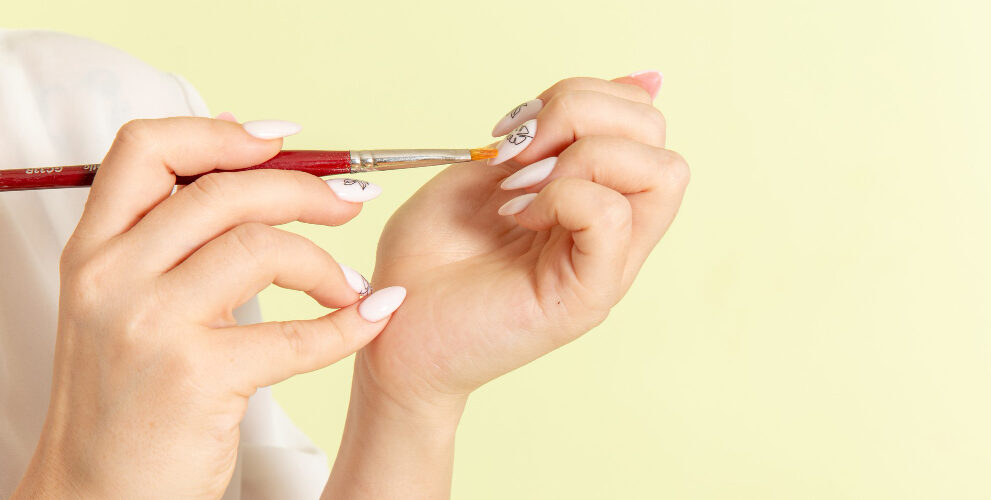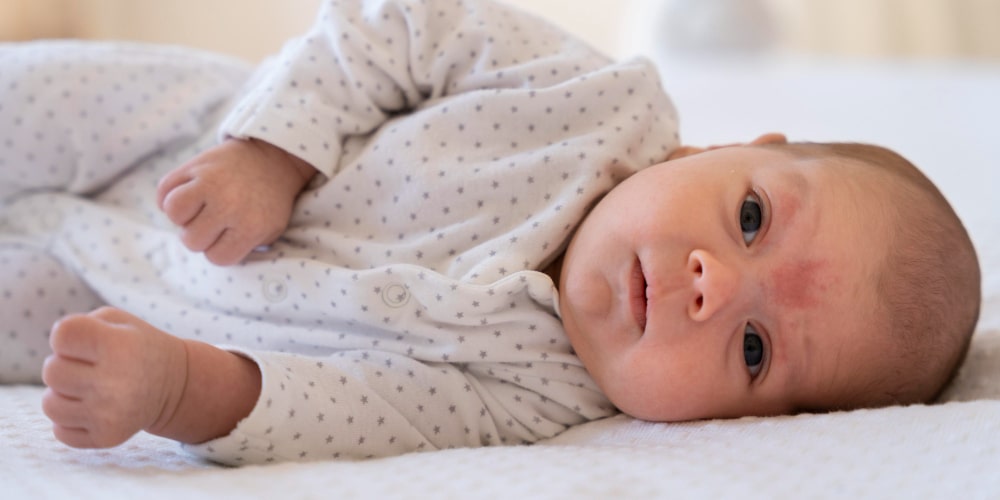FACT CHECK: Are gel nail paint manicures harming your fertility?
Gel nail paints and manicures are the latest trend, but could this beauty fad be harming your health?
Author
Author
- admin / 3 months

- 0
- 5 min read

Author
With festivals around the corner, many are rushing to nail salons for a glossy set of gel nails. But a viral Instagram reel by fitness coach and influencer Priyank Mehta has sparked fresh concerns.
In the reel, styled as a conversation with a woman, Mehta warns, “Dear girls, if you like applying gel paint, getting pregnant is going to be very difficult for you.” He claims most gel paints contain trimethylbenzoic diphenylphosphine oxide (TPO), a chemical linked to cancer and infertility, and adds that it is already banned in Europe.
According to him, studies have shown that these paints release volatile organic compounds (VOCs) that enter the bloodstream, disrupt hormones, and may contribute to conditions like PCOS and irregular cycles.
When asked about solutions, Mehta suggests switching to TPO-free organic nail paints made with ingredients like almond oil, castor oil, or charcoal.
Do gel nail paints really pose a fertility risk, or is this just another beauty myth?
What is a gel nail paint?
Gel nail polish is a specialised nail coating that hardens under a UV or LED lamp through a process called polymerisation. Unlike regular nail polish, which air-dries, gel polish cures with light, forming a durable, high-shine finish that resists chipping. As a result, gel manicures are longer-lasting and can stay intact for two weeks or more.
Do gel nail paints cause infertility?
A recent draft safety review by the Cosmetic Ingredient Review (CIR) evaluated trimethylbenzoyl diphenylphosphine oxide (TPO), a photoinitiator used in UV and LED gel nail systems. In a one-generation reproductive toxicity study in rats, extended treatment led to testicular atrophy, reduced sperm counts, and reduced fertility at high doses. The researchers identified a No Observed Adverse Effect Level (NOAEL) of 60 mg/kg body weight per day, below which no significant reproductive effects were seen in animals.
“According to 2023 VCRP survey data, Trimethylbenzoyl Diphenylphosphine Oxide is used in 127 total formulations, all of which are manicuring preparations,” the review adds.
The European Scientific Committee on Consumer Safety (SCCS) also reviewed TPO and reported that repeated dose toxicity studies in rodents showed male reproductive organ damage and germ cell depletion. This evidence supported its classification as a substance suspected of reproductive toxicity.
While such toxicological data raise concerns, it is important to note that these studies have been done on rodents, and human studies on infertility from gel nail paints are scarce.

A more recent 2024 systematic review provided a broader examination of the long-term effects of UV nail lamps used for curing gel polish. The review found that “prolonged and repeated exposure to UV nail lamps may pose a low risk of skin cancer,” but also emphasised that “the available evidence is weak.” The authors recommended that dermatologists inform patients about the limited data and advise them on preventive measures, such as using UV-blocking gloves or applying sunscreen properly during gel manicures.
Beyond personal use, the risks extend to those who work with these products daily. Nail technicians and hairdressers are routinely exposed to acrylates, glues, parabens, phthalates, volatile organic compounds (like toluene and formaldehyde), and biocides—some of which are associated with cancer and reproductive harm.
A 2021 study by the National Institute for Occupational Safety and Health, under US’ Centers for Disease Control and Prevention, analyzed data from over 43,000 mothers and found that “mothers who gave birth to infants with a congenital heart defect (including any heart defect, conotruncal defects, right ventricular outflow tract obstruction, and septal defects) were roughly 3 times more likely than mothers of infants with no birth defect to have worked as a nail technician during early pregnancy.” While limited by small sample sizes, this study highlights possible reproductive risks among salon workers and underscores the need for more research.
Commenting on the potential risks of gel nail paints and other cosmetic products, Dr Aswati Nair, Fertility Specialist at Nova IVF Fertility, Delhi, highlighted the role of certain chemicals, including TPO, as endocrine disruptors. She explained that these compounds not only act as carcinogens but can also interfere with the body’s hormonal rhythm, leading to reproductive health issues.
“Whenever this hormonal rhythm gets disturbed, patients are prone to various conditions,” she said, “either the hormones could be on the excess side, as we see in PCOS women, or they could be on the lower side, which affects ovarian function.”
She noted that in her clinical practice, she is observing declining ovarian reserves at increasingly younger ages. “I see ladies in their early thirties with AMH levels much lower than expected. Biologically, the ovarian aging process is accelerating, and ovarian reserves are depleting faster, which affects fertility.”
Dr Nair also pointed out a possible link between endocrine disruptors and endometriosis. “One of the theories for endometriosis is that endocrine disruptors, ingested through certain chemicals in products like gel paints or lipsticks, can contribute to this condition,” she explained. She observed that the prevalence of endometriosis among her IVF patients has risen sharply, from about 15% earlier to nearly 40 per cent.
“It’s always better to either skip the use of these products as much as possible or switch to natural alternatives, which are less likely to cause problems. These chemicals definitely have a role, and it’s high time we educate young women about these risks,” Dr Nair suggested.
Also read: Not just skin deep: Psoriasis also hits nails, joints
(Do you have a health-related claim that you would like us to fact-check? Send it to us, and we will fact-check it for you! You can send it on WhatsApp at +91-9311223141, mail us at hello@firstcheck.in, or click here to submit it online)










